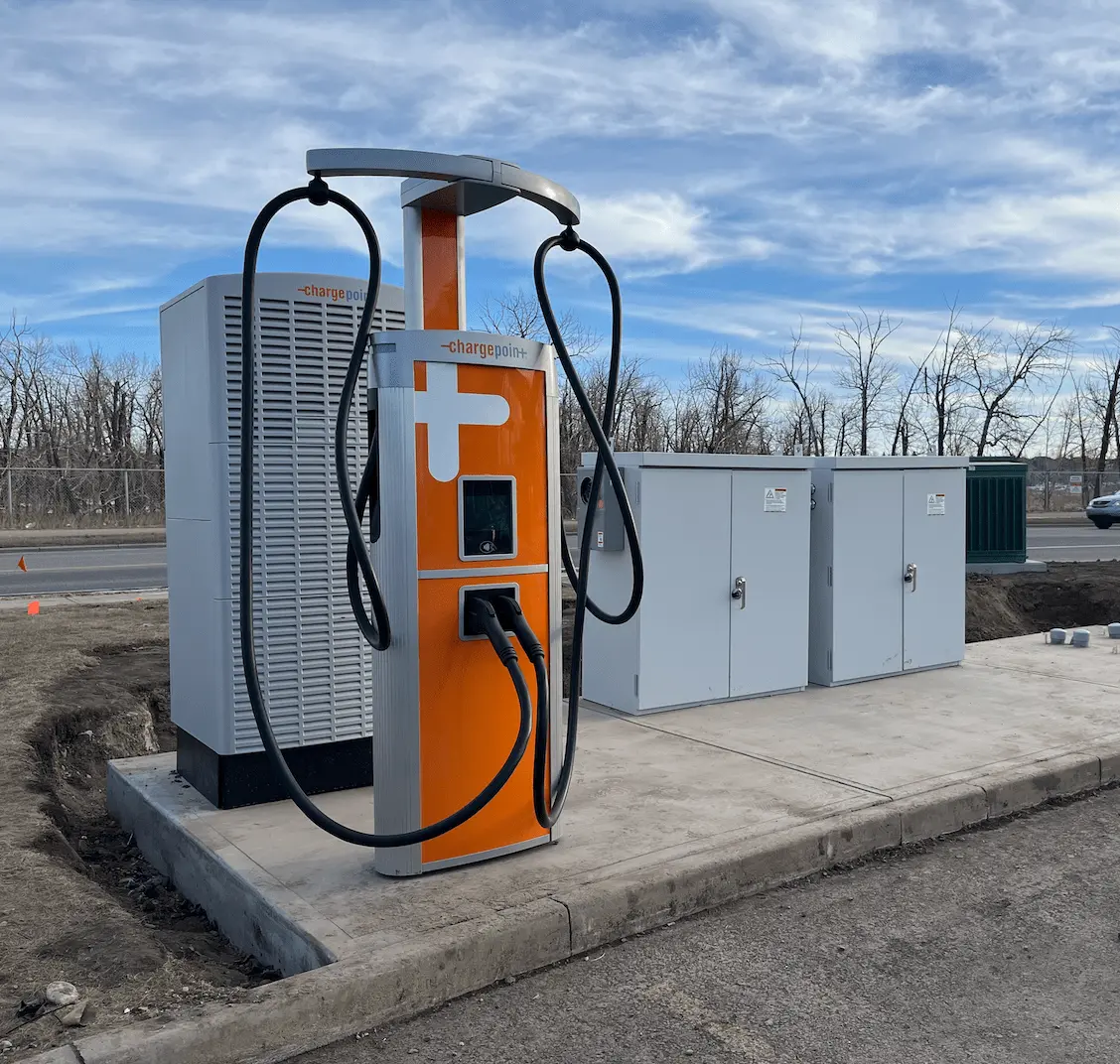Expert commercial EV charger installation services. Serving Edmonton and Calgary, we specialize in designing, installing, and maintaining high-quality charging solutions for electric vehicles.
Whether you’re upgrading your property electrical capacity, enhancing customer experiences with paid charging options, or meeting sustainability goals, our turnkey services ensure seamless integration. Backed by a team of certified electricians, Evalence guarantees reliable, code-compliant installations. Power your business with innovation and attract EV drivers today. Contact us for a free consultation!.
.svg)

.svg)
“Awesome company and people to work with. They take care of all of the permits, inspections and everything needed.”
Steven Ross, Calgary, AB.






Experts in commercial level 2 and level 3 electric vehicle charging, Evalence is equipped to support your next commercial upgrade. Evalence is your electrification partner for Commercial EV. Three reasons why we're leading electric performance in Alberta:

Imagine showing up to a fuel pump in the middle of winter, low on fuel - and the pump is broken. In Canada, charger reliability is a key component for electric performance.
Evalence EV charging experts are equipped with the latest charging technology to ensure your vehicle is fueled when you need it, everyday.

Energy management technology is critical for electric vehicle charging.
Whether you are looking for charging for 2 vehicles or 200, Evalence has the expertise to manage the new infrastructure load to charge these assets efficiently

Our team is composed of electrical engineers, master- and journeyperson electricians, and experienced supervisors that can get your project done on-time and on-budget.

Choosing Evalence Renewables for your commercial EV charger installation ensures you’re partnering with a trusted leader in Edmonton and Calgary. Our certified electricians and engineers provide expert installation services that are safe, reliable, and fully code-compliant. We offer turnkey solutions, handling everything from site assessment and design to permitting and installation, so you can focus on your business while we take care of the rest.
At Evalence, we tailor every EV charging solution to meet your unique needs, whether it’s for employee parking, fleet charging, or enhancing customer convenience. We stay ahead of the curve with future-ready technology, offering high-performance chargers compatible with all EV models.
By choosing Evalence, you’re not just upgrading your business infrastructure—you’re boosting your sustainability efforts, attracting eco-conscious customers and employees, and positioning your business as a leader in clean energy solutions. Let Evalence help you power your business for the future. Contact us today for a free consultation!

Level 2 chargers with energy management for fleets, and commercial vehicles. These can be installed on pedestals, or mounted on in parkades and building exteriors. Typically rated for between 16 - 80A

Level 3 chargers with energy management or service upgrades for fast (30-60) minute charges. This is ideal for heavy traffic locations with quick turn-arounds required.

Level 3 Ultra-Fast charge is appropriate for supercharging sites and heavy equipment parking garages. This is the type of solution required for electric bus fleets, and electric mining equipment.
Yes of course! Our components come with industry leading manufacturer warranties, and a 2 year workmanship defect warranty.
We have offices in Calgary and Edmonton and employ team members in both cities and surrounding areas.
The ITC is calculated net of other incentives. The capital cost base on which the ITC is calculated must be adjusted for any other ITCs applicable to the property. Furthermore, where the taxpayer has received assistance, either from the government or non-government organizations, the ITC is calculated on the cost base of the equipment net of any financial assistance received.
EV fast charging stations commonly use connectors such as CHAdeMO, CCS (Combined Charging System), and Tesla's proprietary Supercharger connector. The choice of connector depends on the vehicle's manufacturer and region, but most stations support multiple types to accommodate different EV models.
Charging times at fast charging stations vary based on factors like the vehicle's battery size, the starting charge level, and the station's power output. As a general guideline, EVs can charge to 80% in approximately 30 minutes at a fast charging station, though newer technologies and higher power stations may reduce this time further.
Yes, there are different levels of fast charging stations categorized by their power output. Level 2 DC fast chargers typically operate at 50 kW to 150 kW, while ultra-fast chargers can exceed 350 kW. The higher the power output, the faster the charging speed, but the compatibility and charging capabilities may vary depending on the EV model and its charging specifications.
EV fast charging in winter can be affected by lower battery efficiency and slower charging speeds due to cold temperatures. Preconditioning systems help mitigate these effects by warming the battery before charging, optimizing performance. Despite challenges, modern EVs and fast charging stations are designed to maintain efficient charging even in colder conditions, ensuring practical usability year-round.